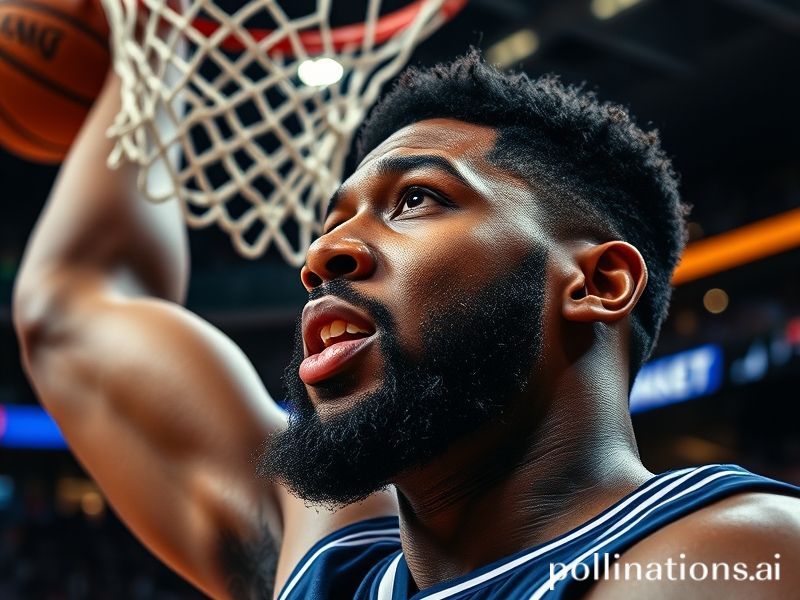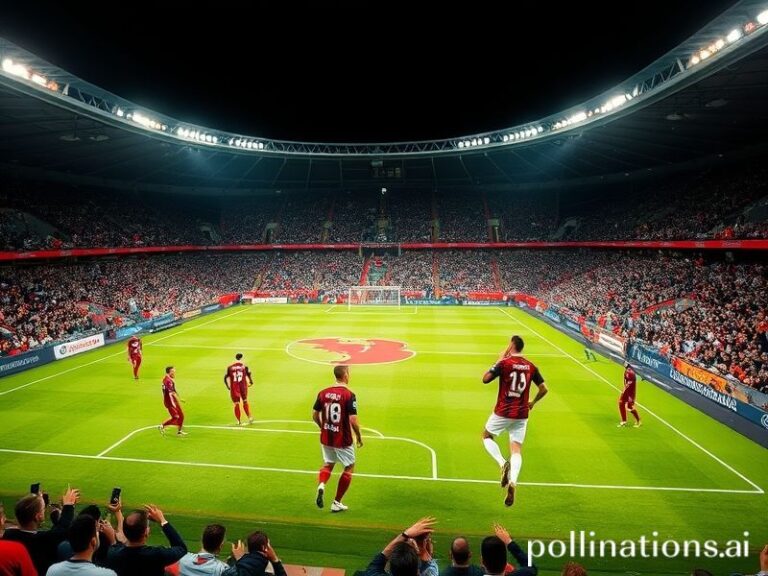Karl-Anthony Towns: The 7-Foot Metaphor for 21st-Century Global Capitalism
Karl-Anthony Towns, or KAT as the marketing departments insist on calling him, is what happens when a basketball prodigy collides with the 21st-century attention economy. Born in Edison, New Jersey, to a Dominican mother and an African-American father, he carries three passports’ worth of expectations before he’s even laced up a sneaker. The Dominican Republic claims him as the greatest export since sugarcane; the United States treats him like a walking GDP bump; and the rest of the world simply wonders why a 7-footer with a jump shot still hasn’t solved climate change or at least brokered a cease-fire in Gaza during halftime.
Internationally, Towns functions as a sort of human Rorschach test. In Europe, where basketball is still considered a quaint American hobby played by people too tall for soccer, scouts watch his footwork like medieval monks studying illuminated manuscripts, searching for the holy grail of “fundamentals.” Meanwhile, in China—where the NBA’s popularity rivals state propaganda—Towns’ jersey sales are tracked with the same fervor usually reserved for quarterly pork belly futures. Somewhere in Lagos, a kid wearing a counterfeit Timberwolves jersey (three sizes too big and spelled “Timberwoolvs”) is practicing fadeaways under a corrugated-tin roof, convinced that one day he too can earn $60 million to lose in the first round.
The global economy has its hooks in him, naturally. Adidas outfits him in shoes stitched together somewhere between Jakarta and the outer rings of Dante’s Inferno, while crypto exchanges plaster his face on LED boards, promising that the blockchain can somehow improve pick-and-roll efficiency. His Twitch streams—because nothing says “elite athlete” like late-night Call of Duty—are beamed to insomniac teenagers from Reykjavík to Riyadh, all of them donating bits in currencies that will be worthless by the time Towns retires. Somewhere, a hedge-fund algorithm is shorting his free-throw percentage against the Turkish lira.
Then there’s the small matter of grief, which the international press politely ignores until it can be monetized. Towns lost his mother and six other relatives to COVID-19, a tragedy that briefly made him more than a fantasy-league decimal point. For a moment, the planet’s attention pivoted from his PER to his humanity—an uncomfortable pivot, like a 7-footer trying to fit in a coach seat on Emirates. European newspapers called it “the cost of American exceptionalism,” while Asian outlets framed it as a cautionary tale about individualism. Only the Australians seemed genuinely surprised, having apparently assumed that NBA players were immune to respiratory disease along with income tax.
And yet, the show lumbers on. In a world where Ukrainian grain shipments negotiate war zones and the Arctic melts faster than Instagram reels, Towns continues to average 20 and 10, as if double-doubles could double as foreign policy. Last season, he became the first international player to win the 3-Point Contest, a feat that ESPN compared to Neil Armstrong’s moon landing, if Armstrong had been sponsored by a Japanese tech conglomerate and the moon were actually a green-screen in Los Angeles.
Ultimately, Karl-Anthony Towns is less a person than a transnational metaphor: a walking embodiment of soft power, soft drinks, and soft defense. He is what global capitalism looks like in shorts—anxious, overextended, occasionally brilliant, and forever one Achilles strain away from irrelevance. When historians sift through the rubble of this era, they’ll find his jersey perfectly preserved in the plastic sarcophagus of consumer culture, next to a half-eaten Big Mac and a broken promise about vaccine equity. Until then, he’ll keep shooting threes, signing sneakers, and reminding us that in the modern world, even grief comes with a Nike swoosh.







